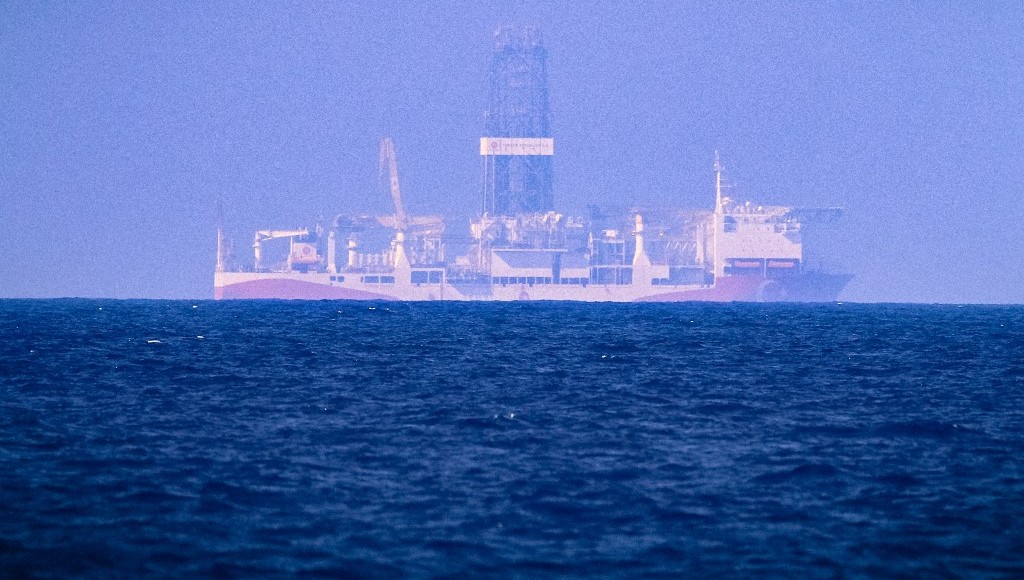The Turkish Foreign Ministry has condemned Greece’s newly announced Maritime Spatial Planning (MSP), claiming some areas specified in the plan encroach on Turkey’s jurisdiction in the Aegean Sea and the eastern Mediterranean.
Greece announced its MSP on Wednesday to manage human activities in maritime areas, such as tourism, offshore energy drilling, fishing and environmental protection.
The announcement on Greece’s MSP came after the country was rebuked by the European Court of Justice earlier this year for failing to submit the plans to the European Commission, as all coastal European Union member states are required to do.
But the Turkish Foreign Ministry said in a statement on Wednesday that some of the areas specified in Greece’s plan “violate Türkiye’s maritime jurisdiction areas in both the Aegean Sea and the Eastern Mediterranean.”
“We also recall that unilateral actions should be avoided in a closed or semi-closed sea such as the Aegean and the Mediterranean,” the ministry said in its statement, adding that “international maritime law encourages cooperation between coastal states in these seas, including on environmental issues, and in this regard, Türkiye is always ready to cooperate with Greece in the Aegean Sea.”
The plan, published by the Greek ministries of Environment and Energy and Foreign Affairs, marks the first time Greece has officially defined its continental shelf limits.
The MSP, mandated by an EU directive dated 2014, organizes marine spaces for sustainable resource use while protecting ecosystems.
It designates zones for transport, renewable energy and fishing, balancing economic growth with environmental conservation. Greece’s MSP, formalized in an EU document, delineates its continental shelf and Exclusive Economic Zone (EEZ), particularly around its 6,000 islands, a point Turkey disputes, rejecting island-based maritime claims.
An EEZ is a maritime area where a coastal country has rights to explore and exploit resources.
The Turkish Foreign Ministry called for a “sincere and comprehensive approach” to resolve issues between the two countries based on international law, equity and good neighborliness, referencing the Athens Declaration of December 7, 2023.
The ministry was referring to a declaration of friendship between the two historic rivals after years of tension over migration, energy rights and maritime borders in the Aegean Sea in December 2023 when Greece and Turkey restarted high-level talks and signed the declaration during President Recep Tayyip Erdoğan’s first visit to Athens since 2017.
The ministry also said it would submit its own MSP to UNESCO and relevant UN bodies.
Meanwhile, Turkey’s National Center for Sea and Maritime Law (DEHUKAM) published its own MSP map, reaffirming its “Blue Homeland” doctrine, which asserts expansive maritime rights in the Aegean and eastern Mediterranean.
The map outlines areas for economic, scientific and military activities while noting the importance of sustainability.
The Greece-Turkey maritime dispute, rooted in decades of disagreement over Aegean and Mediterranean boundaries, has led to naval standoffs, notably in 2020 over drilling rights.
Despite recent diplomatic efforts, including the 2023 Athens meeting where both countries’ leaders leaders signed cooperation deals, tensions persist over whether Greek islands should influence maritime zones, a position Greece defends under United Nations Convention on the Law of the Sea (UNCLOS) and Turkey rejects.
Turkey has not ratified UNCLOS and argues that islands should not have full rights to maritime zones, including EEZs. This is especially relevant in the Aegean and eastern Mediterranean, where numerous Greek islands lie close to the Turkish coast. UNCLOS, on the other hand, recognizes islands as having the same rights to EEZs and continental shelves as mainland territory, unless specific geographic features limit them.
Both nations have reaffirmed their commitment to dialogue, but the MSP developments risk further straining ties.

